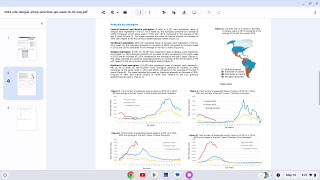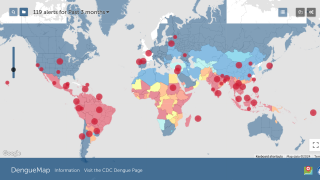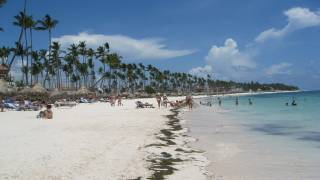Can Dengue Outbreaks Be Stopped

Dengue outbreaks surged across all regions of the world in 2024, with an estimated four billion people at risk globally.
In late 2023, the Dengue outbreaks were graded level 3, the highest level of emergency for the World Health Organization (WHO), as the number of cases has recently doubled yearly, creating uncertainty even in the United States.
As of October 2024, 5,608 locally acquired and travel-related Dengue cases have been confirmed in 50 U.S. jurisdictions, including Los Angeles, Miami, New York, Puerto Rico, and throughout Texas.
To help respond to the expanding health risk, the WHO launched the Global Strategic Preparedness, Readiness, and Response Plan (SPRP) on October 3, 2024, to tackle dengue and other Aedes-borne arboviruses.
"The rapid spread of dengue and other arboviral diseases in recent years is an alarming trend that demands a coordinated response across sectors and borders," said Dr. Tedros Adhanom Ghebreyesus, WHO Director-General, in a press release.
"This plan is a roadmap to turn the tide against this disease and other Aedes-borne arboviral diseases, protect vulnerable populations, and pave the way for a healthier future."
Dengue is now endemic in more than 130 countries. Similar trends are also observed for other arboviral diseases, such as Zika, chikungunya, and, more recently, the Oropouche virus, especially in the Americas. These disease escalations underscore the urgent need for a robust strategy to mitigate risks and safeguard populations.
The WHO's SPRP comprises five key components essential for a successful outbreak response:
Emergency coordination: Establishing leadership and coordination activities;
Collaborative surveillance: Developing and using tools for early detection and control of dengue and other Aedes-borne outbreaks, including strengthened indicator and event-based surveillance, epidemiological analysis, laboratory diagnostics, and field investigations;
Community protection: Engaging communities through active dialogue and local adaptation of prevention and response measures, including mosquito population control;
Safe and scalable care: Ensuring effective clinical management and resilient health services to ensure patients can receive adequate care and prevent illness and death, and
Access to countermeasures: Promoting research and innovation for improved treatments and effective vaccines against these diseases.
While the SPRP briefly comments on Dengue vaccinations targeting heavily affected areas and vulnerable groups, when possible, it does not call for routine immunization programs in endemic countries nor vaccine certificates for international travelers.
The recent WHO recommendation of a second-generation Dengue vaccine (Takeda's QDENGA®) and various vaccine candidates conducting stage clinical trials indicate that vaccine access issues may soon be reduced.
The WHO Plan will be implemented over one year until September 2025 and requires about $55 million in support. It is aligned with the Global Vector Control Response 2017-2030, a global strategy to strengthen vector control worldwide, and the Global Arbovirus Initiative, launched in 2022, focuses on tackling mosquito-borne arboviruses with epidemic potential.
Our Trust Standards: Medical Advisory Committee
























